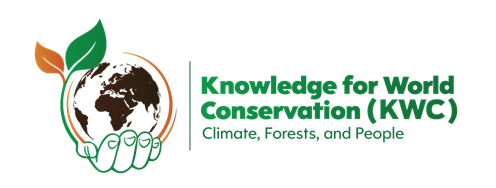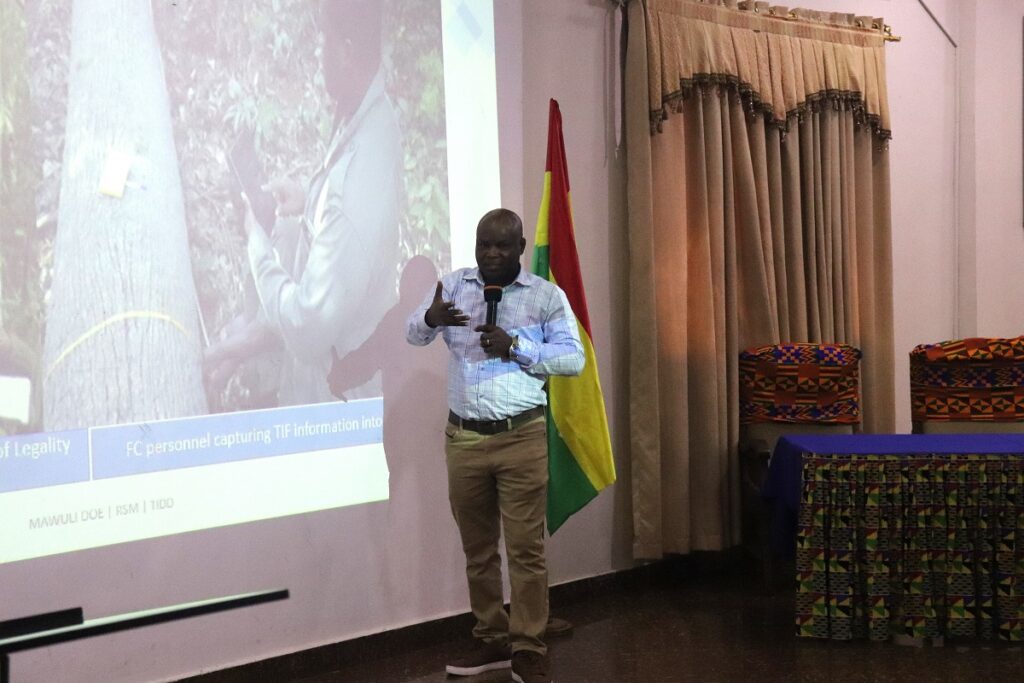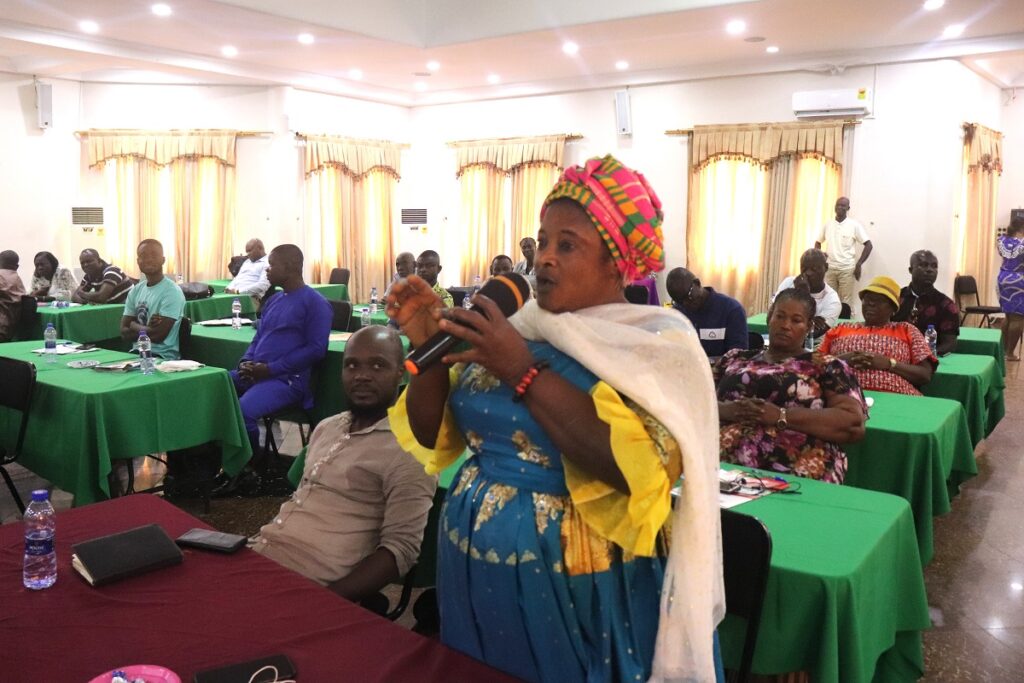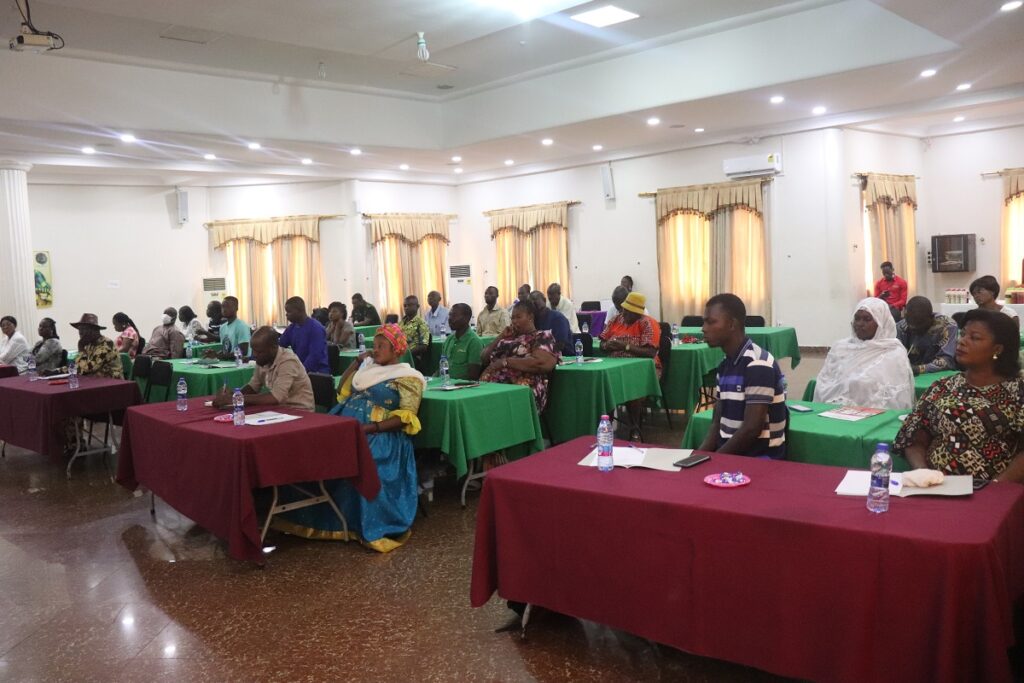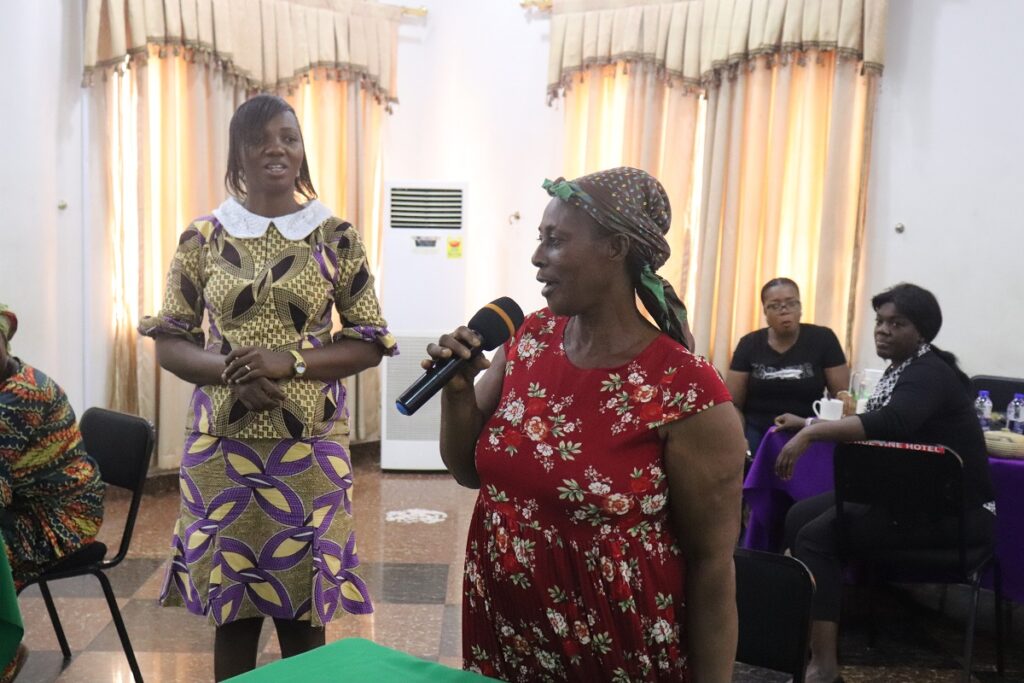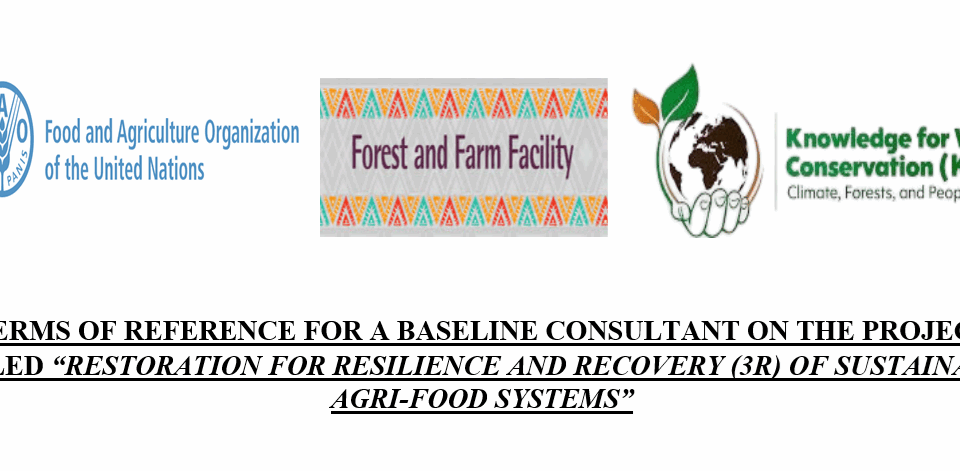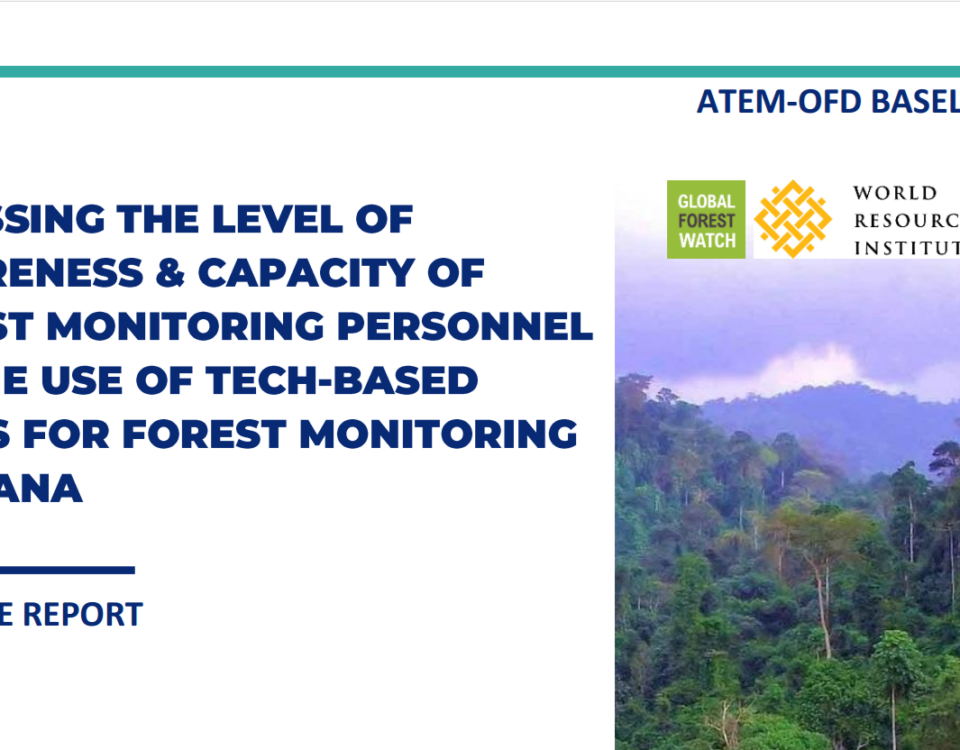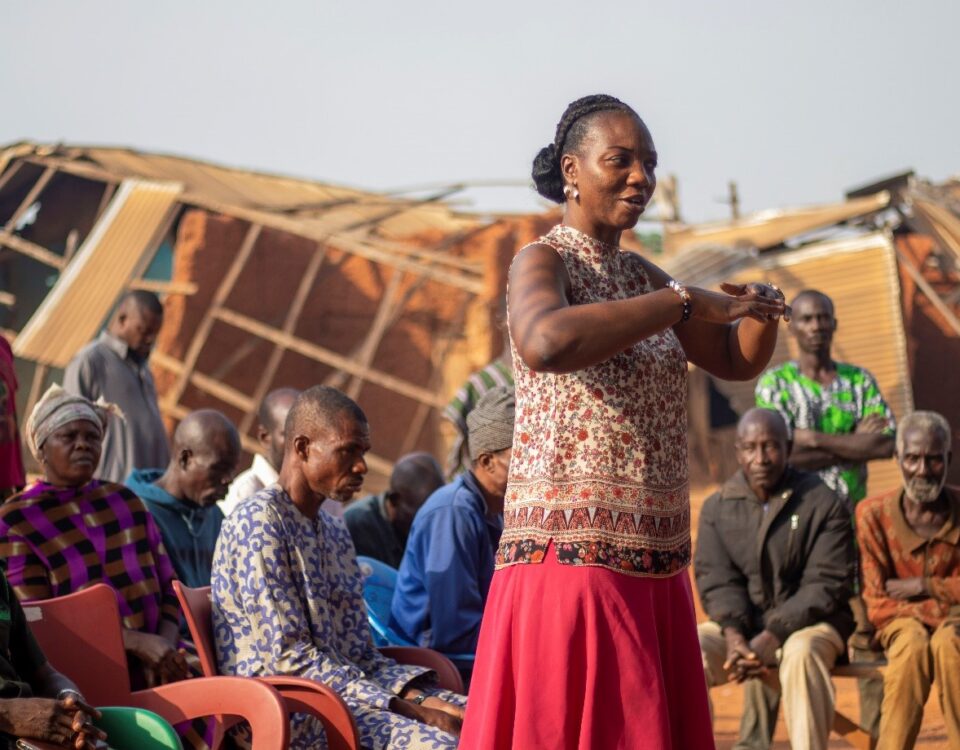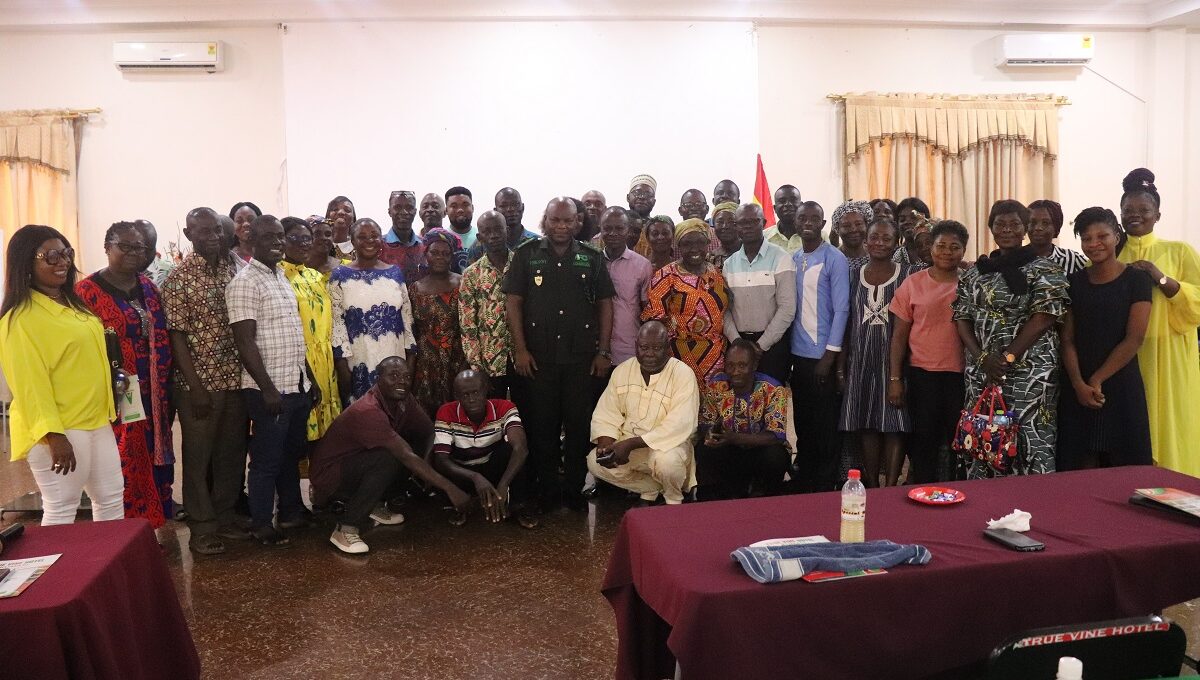
KWC, in collaboration with the TIDD of FC, recently concluded a comprehensive three-day training workshop aimed at equipping Forest and Farm Producer Organizations (FFPOs), Small and Medium Scale Forest Enterprises (SMFEs), and members of the Women in Timber Ghana Association (WiTG) with vital knowledge on legal requirements for timber production and trade.
U nder the FAO-sponsored project "Enhancing capacities for the establishment of legal and sustainable timber and Forest product value chains as part of the Restoration for Resilience and Recovery (3R) project in Ghana," the training focused on compliance with Ghana's Legality Assurance System (GhLAS) and Ghana Wood Tracking System (GWTS). The workshop aimed to enhance participants' understanding of these systems, thereby ensuring legal and sustainable timber practices.
The training sessions, which took place from June 26th to 29th, 2023, witnessed the active participation of 119 stakeholders from various sectors of the timber industry. Held at the True Vine Hotel in Ahodwo, Kumasi, the workshop drew attendees from Forest and Farm Producer Organizations (FFPO), Small and Medium Forest Enterprises (SMFE), and Women in Timber Ghana Association (WiTG), with 50 FFPOs, 40 SMFEs, and 30 WiTG members present.
The workshop's agenda encompassed three sections per day, covering crucial aspects of the timber industry. The sessions were led by Mr. Eric Abbeyquaye, the Operations Manager of the Southern Sector of TIDD, Mr. Yaw Kumih Gyabaah, the Contract and Permit Manager of TIDD and Mr. Samuel Mawuli Doe, the Research, Statistics, and ICT Manager of TIDD, who provided in-depth knowledge on compliance procedures and regulations. Participants gained insights into GhLAS and GWTS, timber trade registration procedures and documentation, and their roles within the framework of GhLAS principles.
The training delved into various key topics, including the three sources of timber allocation – Timber Utilization Contracts, Salvage permits, and Certificates of Purchase – elucidating the processes involved. Furthermore, participants received comprehensive guidance on tree harvesting procedures, transportation of timber and wood products, processing of logs, and trade licenses and permits. The training also emphasized the importance of meeting fiscal obligations to ensure compliance with GhLAS requirements.
To enhance engagement and understanding, interactive group discussions were held after each training session. Participants were divided into groups based on their roles in the timber supply chain, allowing them to act out their responsibilities and exchange knowledge on legal documentation requirements. The exercise facilitated a deeper understanding of the processes and control points throughout the supply chain.
I now know the legal processes to follow to enable me to give access to trees on my cocoa farm and how I stand to benefit when the trees mature. I will take very good care of the trees on my farm.
The feedback from the evaluation forms demonstrated the effectiveness and positive impact of the workshop. Participants confirmed their increased awareness and understanding of legal timber production and trade. Concerns raised by participants, such as harassment from the Forestry Commission timber monitoring task force and challenges in obtaining permits for plantation timber, were diligently addressed by the resource persons, ensuring a satisfactory learning experience.
Mr. Eric Aboagye, Technical/Field Officer of the Kokoopa Farmers Association, emphasized the benefits of the training in preventing conflicts between cocoa farmers and loggers. He stated, "Our members are privileged to benefit from this training, as it will prevent confrontations between cocoa farmers and loggers. Now, some of our members are aware of the legal requirements that need to be complied with. We are grateful to the organizations that designed and funded this project."
Madam Beatrice Baah, a wood carver and Secretary of the Women in Timber Ghana, found the training to be highly educative, particularly in relation to exporting her products. She shared, "Being a wood carver with the potential of exporting some of my products, I did not know anything about the Voluntary Partnership Agreement (VPA) and the legality requirements related to exports. This training has been an eye-opener for me.".
The training workshop serves as a significant step towards establishing legal and sustainable timber and forest product value chains in Ghana. By equipping industry stakeholders with comprehensive knowledge on compliance procedures and regulations, the workshop aims to facilitate a responsible and environmentally conscious timber industry.
As the timber industry in Ghana moves towards greater sustainability, initiatives like this training workshop and project, sponsored by the FAO, play a pivotal role in promoting legal timber practices, protecting forests, and ensuring the long-term viability of the sector. The commitment shown by KWC and TIDD in empowering stakeholders reflects a collective effort towards a more sustainable future.
